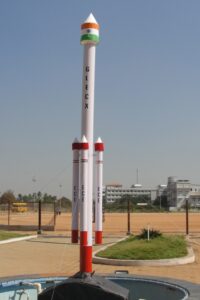
About Us:
Electronics and Communication Engineering has gained importance in recent years due to its versatile application in every facet of engineering field. The Department of Electronics and Communication Engineering was established in the year 2007-08 with approval from AICTE, New Delhi and affiliation from Anna University, Chennai with an initial intake of 60 students. The student intake was subsequently increased to 90 in the year 2009-10 and it was increased to 120 from the year 2012-13.The department has spacious laboratories, class rooms, staff rooms, and well stacked department library. Department has strong interaction with the students and are exposed to the cutting-edge technologies applied in industries by way of internships, in-plant trainings and industrial visits.
Programme Educational Objectives:
- Engineering knowledge: Apply the knowledge of mathematics, science, and engineering principles to solve problems in the domain of Electronics and Communication Engineering.
- Problem Analysis: Identify, formulate, review research literature, and analyze complex engineering problems reaching substantiated conclusions using first principles of mathematics, natural sciences, and engineering sciences.
- Design/Development of solutions: Design solutions for complex engineering problems and design system components or processes that meet the specified needs with appropriate consideration for the public health and safety, and the cultural, societal, and environmental considerations.
- Conduct investigations of complex problems: Use research-based knowledge and research methods including design of experiments, analysis and interpretation of data, and synthesis of the information to provide valid conclusions.
- Modern tool usage:Create, select, and apply appropriate techniques, resources, and modern engineering and IT tools including prediction and modeling to complex engineering activities with an understanding of the limitations.
- The engineer and society:Apply reasoning informed by the contextual knowledge to assess Societal, Health, Safety, Legal and Cultural issues and the consequent responsibilities relevant to the professional engineering practice.
- Environment and sustainability: Understand the impact of the professional engineering solutions in societal and environmental contexts, and demonstrate the knowledge of, and need for sustainable development.
- Ethics: Apply ethical principles and commit to professional ethics and responsibilities and norms of the engineering practice.
- Individual and teamwork: Function effectively as an individual, and as a member or leader in diverse teams, and in multidisciplinary settings.
- Communication: Communicate effectively on complex engineering activities with the engineering community and with society at large, such as, being able to comprehend and write effective reports and design documentation, make effective presentations, and give and receive clear instructions.
- Project management and finance: Demonstrate knowledge and understanding of the engineering and management principles and apply these to one’s own work, as a member and leader in a team, to manage projects and in multidisciplinary environments.
- Life-long learning: Recognize the need for, and have the preparation and ability to engage in independent and life-long learning in the broadest context of technological change.
Our Vision
Our Mission
To provide students with hands on training on latest technology with supporting software knowledge.
To provide stimulating environment for continuously updated facilities to pursue research activities through creative thinking and team work.



